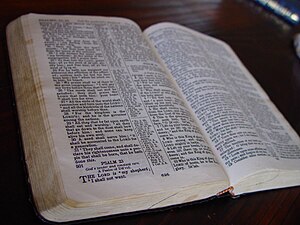“The child Sh’mu’el kept growing and gaining
favor both with Adonai and with people.”
-1 Samuel 2:26
The immorality and horrific nature of Eli’s sons are brought to the fore all the more when contrasted with the purity of the child Sh’mu’el.
Verse 26 tells us that as the young boy grew bigger and bigger, so did his favor with the Lord.
The intention here is to show how the light of Samuel was the polar opposite of the darkness displayed by Hophni and Pinchas.
These two scoundrel sons of Eli had lost all favor with God and it would never be recovered.
God had had enough of the abuse they committed against those who visited the Sanctuary in a sincere attempt to worship and obey the Lord’s commands.
The authority of the priesthood was about to experience a major change.
To kick off this power shift, verse 27 tells us that a “man of God” suddenly appeared to Eli.
In Hebrew this is ISH ELOHIM.
Who or what exactly was this ISH ELOHIM?
Was he a spiritual being like an angel?
Or just a regular human being?
The answer is he was a prophet.
In fact, the term ISH ELOHIM is a typical phrase used to describe a prophet in the Scriptures.
Even though they were normal people, there was one characteristic they had which separated them from any other human being on the planet.
They carried the authority and spoke the very words of God.
You’ll notice in the Scriptures that when a prophet speaks God’s Words, it’s done in the first person.
Usually they start off by saying “I the Lord” or some other similar phrase.
And then what follows is a word for word message they received from God.
This ain’t no half-rearended paraphrasing…
Or personal opinions being expressed.
This is actually an important rule to keep in mind.
When reading your Bible you should be able to tell the difference between men speaking God’s Words and men speaking their own words.
Both exist in the Scriptures…
And keep in mind when I say the Scriptures…
I am ONLY referring to the Hebrew Bible…
Or that portion of the Bible the gentiles refer to as the “Old” Testament…
Man do I hate that term the “Old” Testament…
Because they’re ain’t nothing old about it.
This also brings to mind another point I’ve said before and I’ll say it again…
The New Testament is NOT God-breathed Holy Scripture…
It is an inspired commentary testifying that Yeshua is the Messiah.
In fact, I’d say only about 50% of the New Testament is God-breathed.
Why?
Because about 50% of the New Testament are quotes pulled directly from the Hebrew Bible.
Ya feel me?
So make sure you’re aware of that.
A lot of stuff that Paul and the other Apostles said are simply their own words and opinions that absolutely do NOT carry the same weight as direct oracles received from God Himself.
Keep that in mind when you study the Word.




It may be better to say (something to the effect) that the “davar of ELOHIM (word of God) are those recorded words which proceed/ quoted from the mouth of ELOHIM in first person”. Usually these are the words as instructed by ELOHIM/ malak for the writer to record accordingly. All other words are the words of the writer?
Thanks Gim!
Hi, I’m on a journey to figure out my understanding of the word and how to live honestly and authentically as a lover of God. I have come to recognise the a lot of the way we engage in spiritual practice is heavily based on culture and cultural expectations, especially within our churches. These cultural overtones that infiltrate the teaching has time and again proven to be harmful for people pursuing Christianity. So I’m invested in figuring out Gods ways and word for myself.
But I have a question around how we can figure out what is God-breathed in the word because I want to avoid feeling like I’m twisting scripture
Hi Sylvia,
Great question!
One way I like to look at is to consider the layout of the Tabernacle…
First, you have the Holiest of Holies, then you have the Holy Place, and then you have the Outer Courtyard.
Now let’s apply this model to the Bible.
The Torah (the first 5 Books of Moses) are equivalent to the Holiest of Holies.
The other Scriptures in the Hebrew Bible (the books the gentiles call the “Old” Testament) are equivalent to the Holy Place.
And then finally the Outer Courtyard (where the sacrificing took place) is equivalent to the New Testament.
So each part was holy but varied in its degrees of holiness…
And the Torah, the core or nucleus of the Scriptures is the holiest of them all.
Hope this answer helps.
Be blessed.
We may note following terms used in scripture (BTC version):
A) ELOHIM-breathed sephar > 2Tim 3:16
B) RUACH-breathed bodies > 1Cor 15:44, 46;
C) RUACH-breathed songs > Eph 5:19; Col 3:16.
Gim
BTC > https://www.btc2023.net/1-prologue
I love everything about this except the Book of Revelation is absolutely from God because the prophecies and 17 and 18 have largely come true.
https://www.listenbelieveandfollow.com/who-is-babylon/